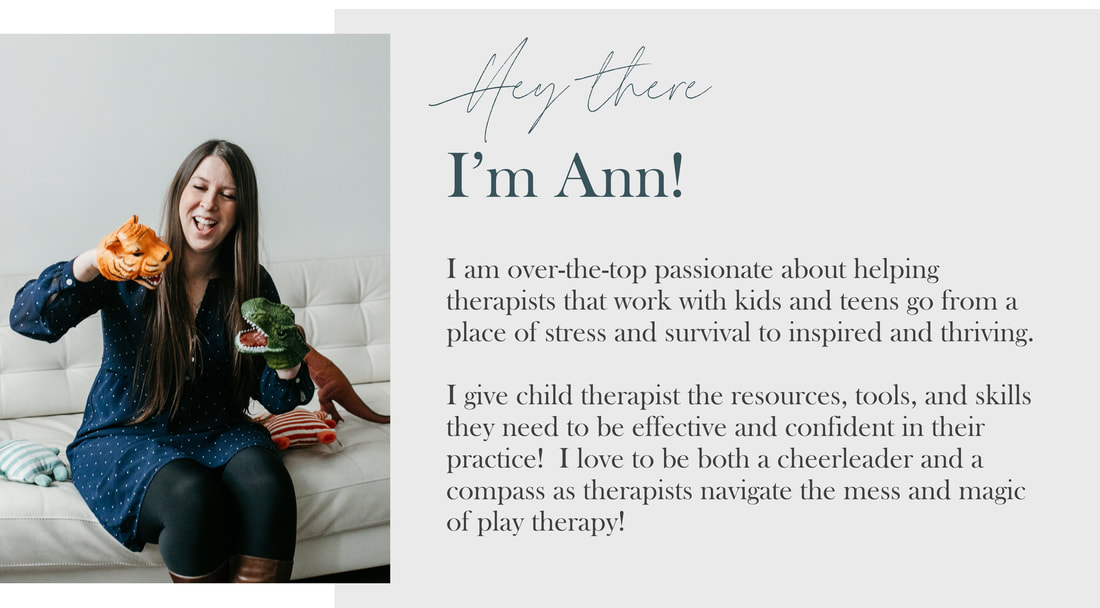|
If you casually flip through all 110,723,302 pages of documentation I have created in my child therapy career there is one thing you will never see.
This is also one of the things I never recommend to anyone who has ever been in any of my consultation or supervision groups. It is also something that I (thankfully) learned really early in my career. And it all started with this one sentence “You are not the custody evaluator”.
Said over and over and over again in one of my onboarding training for my first official therapy job after graduate school. On a side note, one of the things I absolutely loved about this job was the depth and thoroughness I received in training about all things documentation!
So here is the scoop - before I started at this agency, there was a therapist that was working with a case involving custody and who was acting in a therapy role (this will be important in a minute - I promise). During this time there was some recommendation made by this therapist about custody, parenting time, or visitation. And this documentation was provided for and used in a court proceeding that was determining custody, parenting time, and visitation. Well…. the parent that had (what they would consider) an unfavorable outcome was extremely upset that the outcome was due (in part) to the recommendation of the therapist. This resulted in legal action against the therapist and agency. And guess what? One of the greatest number of malpractice cases against a child therapist has to do with high conflict co-parenting, divorce, and custody. In the case above, that therapist would then begin the journey of having to prove that the recommendation was something they were ethically and legally able to make. Spoiler alert - it wasn’t. And I get it - as a therapist you want to advocate for what you believe to be in the best interest of your client, however you need to be crystal clear about the boundaries between your opinion personally or in a mental health therapy role vs. being in a role with training and experience to be able to make and back up those recommendations. To make determinations about custody you need to have special training and supervision to develop the expertise AND you need to have the capacity to fully evaluate all invested parties (including both parents). This would absolutely be a conflict of interest for someone to act both in a custody evaluator role AND as an individual child’s therapist. Without training this is a significant ethical and legal issue of practicing outside scope of practice. And while this is a really painful thing for a clinician, family, and agency - I am grateful I got to reap the benefits of being trained clearly on what our roles are and are not when we are acting in a mental health therapist role. So what you will find in my documentation is actually quite the opposite. A lot of parents seek support during the divorce and custody process in the form of therapy for their children. AND each parent truly believes they have the best interest of their child at heart. It is from a place of pain and hopelessness (and sometimes at the request of a lawyer) that parents can seek out therapy in an attempt to connect with a therapist who will not only validate their perspective as a parent but also make clear recommendations that they are in fact the parent that should have all the legal and physical custody. For this reason, I clearly document (and state out loud) when parents request that I provide custody recommendations for court, clarification of my role as individual therapist, scope of practice, and that I do not have the capacity or training to document or write recommendations about custody and parenting time. Why? Because, I’m not the custody evaluator. Oh, and I also DO make sure to recommend several helpful resources like a trained professional who is competent in determining custody and parenting time so the family can have this resource and support as they move forward. P.S. I also hope that it goes without saying that I don’t recommend you make statements about custody, parenting time, or visitation out loud either. If you are struggling with play therapy progress note support this is just the tip of the iceberg for what I teach in The 5 Minute Note Course. This course gives you support on all things progress notes. Learn to shrink your note writing process to write effortless and effective notes within your therapy day! This course includes all the details, guides, and cheat sheets to help you know what to write and how to write it. AND includes templates and cheat sheets specifically for progress notes for play therapy! Loading...
0 Comments
Leave a Reply. |
Hi, there!I'm Ann Meehan, an LPCC, Loading... Archives
July 2024
Categories
All
|
Privacy Policies | Terms of Use | Disclaimer
Contact
[email protected] | Copyright Meehan Mental Health Services 2022
Contact
[email protected] | Copyright Meehan Mental Health Services 2022







